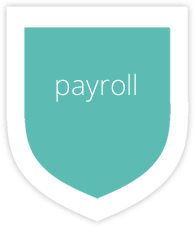Estimated Tax Payments

The IRS works on a pay-as-you-earn basis. That means the IRS requires everyone to pay taxes as they are earning throughout the year. If you’re an employee, the process may seem more comfortable because an HR department does the withholding calculations for you & applies it to your paycheck. However, as self-employed business owners, you’re responsible for all the payroll requirements for your employees and yourself. If you’re not paying yourself a payroll check, you should be making quarterly estimated tax payments during the year.
When estimating your quarterly tax payments, consider all your income sources. The IRS wants you to make tax payments on all your earnings, including self-employment income, interest earnings, dividends and any rental incomes. Knowing what you expect to earn in the upcoming year can give you an estimate of your tax obligation. Take that number & divide it into four equal tax payments & send payment to the IRS using 1040-ES voucher. Your prior year’s tax return can serve as a guide, and we can also help you figure out your estimated tax payments.
Estimated Tax Payments Due Dates
Estimated tax payments are due as follows:
- January 1 to March 31 – DUE April 15
- April 1 to May 31 – DUE June 15
- June 1 to August 31 – DUE September 15
- September 1 to December 31 – DUE January 15 of the following year
- Note: If these due dates fall on a Saturday, Sunday or legal holiday, the payments are due the next business day.
For many businesses, there are significant tax advantages to paying yourself (and your employees) a payroll check. Moreover, this is quickly set up using a payroll company. The payroll company will withhold the necessary tax and will directly pay it to the IRS on your behalf. Payroll companies us easy online tools to schedule your paycheck, and you DO have the option not to take a paycheck if you don’t have the available cash flow. However, you won’t need to worry about missing deadlines.
We recommend checking your withholdings often and adjust it when your life situation changes. To do this fill out a new Form W-4 and keep it on file with your other financial documents.
 At Paragon, we look at your business holistically & give you recommendations on payroll and tax withholdings that fit your unique situation. Moreover, we look for ways to save you the most on taxes. Contact us to set up an appointment. We are available year round to alleviate anxiety and difficulties with your business & personal taxes.
At Paragon, we look at your business holistically & give you recommendations on payroll and tax withholdings that fit your unique situation. Moreover, we look for ways to save you the most on taxes. Contact us to set up an appointment. We are available year round to alleviate anxiety and difficulties with your business & personal taxes.
